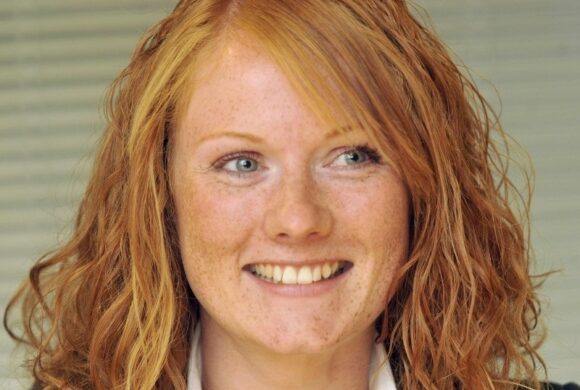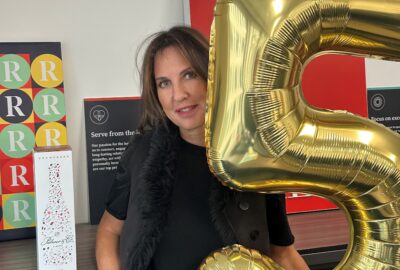
This month, we had the pleasure of speaking with Ellie Ludlam, a cyber and data risk partner at Pinsent Masons, about her inspiring journey in the legal profession. Ellie shares candid insights on the challenges of balancing motherhood with a demanding career in law, the barriers women often face in this field, and her return to law after a career break. She highlights the importance of flexibility, support systems, and the need for employers to adapt to retain talented female professionals in the industry.
Achieving partnership in a law firm is a significant milestone in one's career, particularly for women in a historically male-dominated field. Could you share some insights into your journey to partnership, highlighting any specific challenges or biases you encountered as a woman working in law?
I think the biggest challenge for me in getting to partnership was having young children whilst I was progressing up the ranks at my firm.
Expectations on Senior Associates as they transition from that rank to Partner can be really high insofar as you're expected to hit your chargeable targets, you're doing increasing amounts of business development, you'll be doing thought leadership and there'll be other value add things too. I've always done a lot of work in the ED&I space and trying to fit all of that in and raise small children has been no mean feat.
I don't feel like I necessarily encountered any bias as I went up the ranks. I think it's more that by default it was a hard juggle with the expectations on me as my children’s mother and as someone in a demanding role, seeking promotion. Inflexibility on the part of employers can inhibit progression of working mothers and can, unfortunately, drive people away from the profession as a feeling of not being able to do both roles (motherhood and lawyering) can develop.
In terms of how I overcame it, I am very lucky that my husband does the same job, he's a partner in a law firm and really understands the pressures. There's been a serious degree of flexibility, sharing and communicating at home to make sure that everything runs smoothly, that we see lot of our children and that we can continue to do our jobs well. I have good friends who have said that anything childcare related is on them and their husbands have nothing to do with it. Trying to progress your career in those circumstances must be really challenging.
You took a break from your legal career for four years to raise your children. How did you find it returning to the legal profession and re-negotiating your way back into the firm with the additional role of being a mother? What were your main concerns or biases, if any, you faced during this period?
I had a year off with my first child and came back full-time - I found that really hard.
I had my first child quite early on in my career so I was really keen to prove to everyone that I was still the good junior lawyer that I was before I left. But, I was constantly missing things with my son. I would always be checking my blackberry (shows how long ago this was!) after nursery pick up and during dinner time and I felt terribly guilty.
During my maternity leave with my second child, I had this pivotal conversation with my son who was home with me. He said; “mummy, did you buy me from nursery?” I said; “no why would you think that?” He replied; “because I used to spend all my time at nursery and now I spend all my time with you, so I thought you must have bought me.” I was completely heartbroken.
This was over 10 years ago so it was a different time then – working from home and part time hours were not really available in city law firms. I spent my second maternity leave trying to agree part time hours with my old firm and really couldn’t get there. I'm very driven, but I'm also a passionate mother who wants to be present for my children. As such, I didn't want to make the same mistake twice of feeling like I was missing things with my children. I never really wanted to leave the law. I loved being a lawyer and still do, but my kids really firmly come first. That really informed the decision to take a career break to concentrate on raising the children.
Luckily, a fantastic woman from my old firm got in touch after I’d had my third child to say they’d love to have me back when I was ready, and asked if I would talk to them first before going to the wider market. I did not want return to my old practice area because it was challenging with children. I was open to trying new things, but I wanted it to be part time, with some working days at home. At the time the data protection team was drowning in work and was led by a fabulous female partner who had young twins herself, so totally understood what I was trying to do, and was really flexible.
In terms of coming back, I was really nervous that I would have forgotten how to be a lawyer. There were things I found hard to navigate on my return:
- coming into a non-contentious area that I knew nothing about;
- being brought back as an NQE and on NQE pay because I had no data protection experience ( having been around 5 years PQE when I left the same firm); and
- reporting into someone who was once my trainee.
However, the firm was great and said my career would not track at the traditional NQ rate because of my previous years’ experience. They were right and it actually just gave me the space to find my feet, learn my new practice area and get established without that level of pressure and expectation that comes with a more senior role, all whilst learning how to juggle working life with three children. I was given the space to grow and learn and it worked.
Can you tell us about your experience as a Back to Law Ambassador?
When I returned to law, there was very little support available to help with the transition so I contacted the Law Society to see what could be done. They were trying to launch a back to law program, and ultimately invited me to be an ambassador.
The idea is that we're there to help challenge misconceptions about returners. I talk to businesses about their roles an employers and to individuals who are looking to return to work. When I mentor individuals, I might just be discussing challenges of returning, confidence issues, or making introductions, looking over CVs or discussing how to frame a career break on a CV.
Confidence seems to be the big hurdle for everyone who's looking to make a return. I find there are two parts to it.
First, the mental confidence hurdle that you need to overcome before you go back. Will I be able to do the job still? If you've been consumed by children's routines and things like that, will I still know how to lawyer?
And then there's the confidence that you need once you're back at work. People quickly realise that actually the knowledge hasn't gone anywhere, it's still in there. But there's an other kind of confidence that is required. If you've got children and you're wanting to manage the juggle that we've already talked about, there's a confidence in being able to say to line managers and your team, I need flexibility because my children are young.
If you haven't got people senior to you who you can bounce those challenges off, who are receptive to those types of discussions, it can be really difficult to be the one that is constantly saying, I want flexibility to leave at a particular time, or I can’t make meetings on a particular day because it’s my non-working day, for example.
You specialise in privacy litigation, cyber and data risk matters. As a winner of the Most Inspiring Women in Cyber Awards in 2021, can you tell us about an interesting case or a professional achievement, apart from this win, that you’re most proud of.
Most of my work is really confidential because it's focussed on supporting businesses that are going through cyber attacks, so I can’t talk about that easily. However, in terms of something I am particularly proud of, with the help of two colleagues, I launched the Move for a Safer Internet competition in support of the Internet Watch Foundation (the “IWF”). Over the course of four weeks, companies within the cyber insurance ecosystem compete to do the most minutes of exercise, all whilst raising money for the IWF. The company with the most minutes, wins a super-charged donation from Pinsent Masons to their fundraising pot.
The IWF is an amazing charity that works to remove online child abuse, imagery and videos so their work is hugely important and, as a mother, I'm passionate about what they do. Last year, we raised about £17,000 for the IWF and the competition is set to run again, starting in September 2024. Needless to say, I’m hoping we will raise even more money and will continue to raise the profile of this charity. I am very proud of Move for a Safer Internet.
If you had to pick one thing, person, book you’ve read or experience that’s changed the course of your life, what would it be?
That is a difficult question as there are so many experiences that feed into who I am now. However, I would say meeting my husband and deciding to have children changed the course of my life. There is life before children and life after – they have shaped everything.
What would your occupation be if you had followed your childhood dream?
When I was a child, I either wanted to be a professional footballer (I loved playing football), or I wanted to be an opera singer. I loved singing which ultimately led me to study a music degree.
Who would you most like to switch places with for a day (could be anyone — a celebrity or even an animal!)
I would love to be involved with the UN somehow, or a human rights barrister fighting atrocities for the greater good of humanity, I've always thought that would be fascinating.


